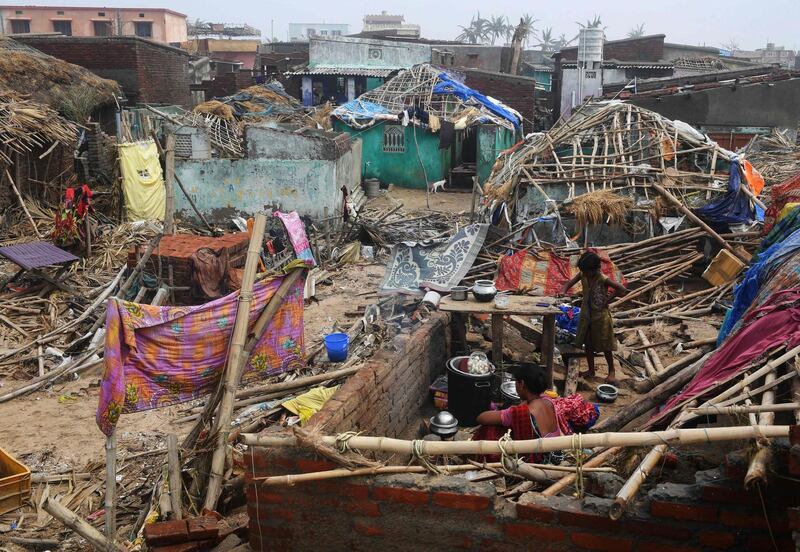I write in reference to your article Cyclone Fani: Monster storm smashes into eastern India (May 3). As an Indian, I found this piece on the ongoing cyclone in the eastern Indian state of Odisha deeply moving. Odisha has faced one of the toughest cyclones in recent memory and the government has taken precautionary measures to evacuate more than one million people to safe places. That, itself, is very welcome.
In the past, Odisha has been the target of many natural disasters. I pray for all those affected by this terrifying weather pattern and that it dissipate as soon as possible.
K Ragavan, Bengaluru
Indians must turn out to vote in this important election
I refer to your article At halfway mark, Indian officials trek into lion-filled jungle to find a solitary voter (April 23). These elections are certainly well organised. Thus far, elections have been held in four of the seven phases, without much violence or upheaval. Election booths are opening on schedule at 7am and the voting process, at least in my case, takes two to three minutes. The entire process was seamless, with preference being given to senior citizens, the disabled and women. Separate queues for women helped them to vote faster. It is a positive reflection of the administrative machinery, police and security staff of the country.
It is also heartening to note that many Indians who live or work abroad returned to the country to exercise their franchise. Indians are fortunate to live in a democracy. It helps us to decide, collectively, who will manage the country. If we do not vote, we lose the right to complain. We cannot complain if the country is not managed efficiently. We cannot grumble if the borders are not protected, or the cost of living inflates, if there are traffic snarls, if the farmers are forced to live in poverty, if trains run late. If we do not exercise our right to choose our leaders, then we lose the right to admonish them.
Rajendra Aneja, Dubai
Hopes for peace in war-scarred South Sudan
I write in reference to Charlie Mitchell's article South Sudan negotiators in race to save peace deal (May 3). Tribalism and a lust for power in South Sudan have created an utter disregard for human rights. I hope peace returns to the country.
Name withheld by request
A grim new trend in modern electoral politics
I refer to Samanth Subramanian's opinion piece Sadhvi Pragya Thakur's election run embodies the worst fears of many Indian voters (May 1). This appears to be a trend in modern politics. Many political parties are fielding alleged criminals, who could decide the destiny of a nation while sitting in parliament. The voters are equally guilty of supporting them.
Name withheld by request





